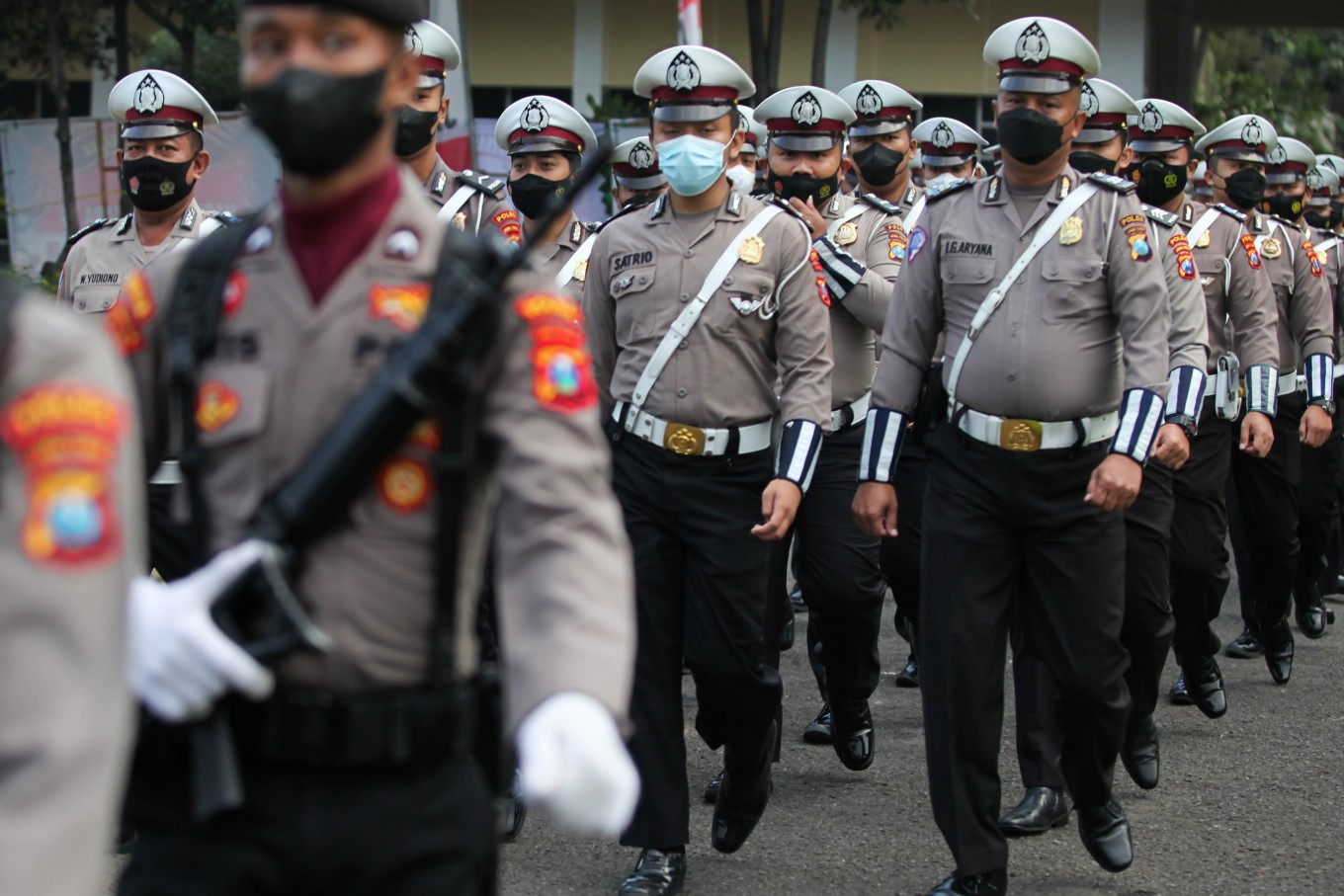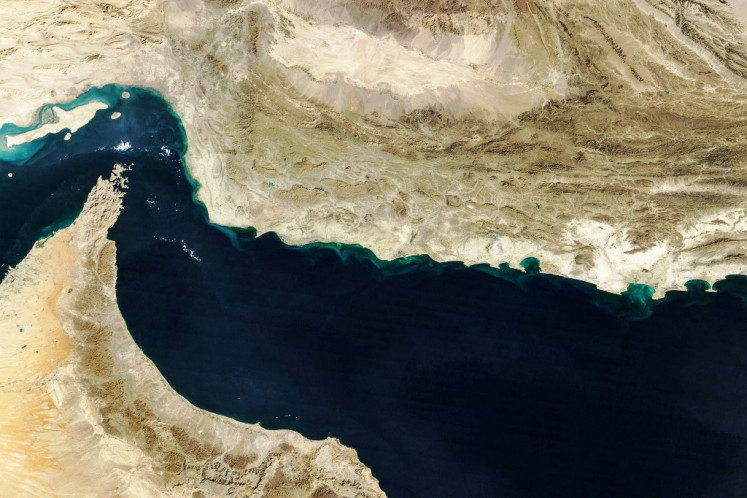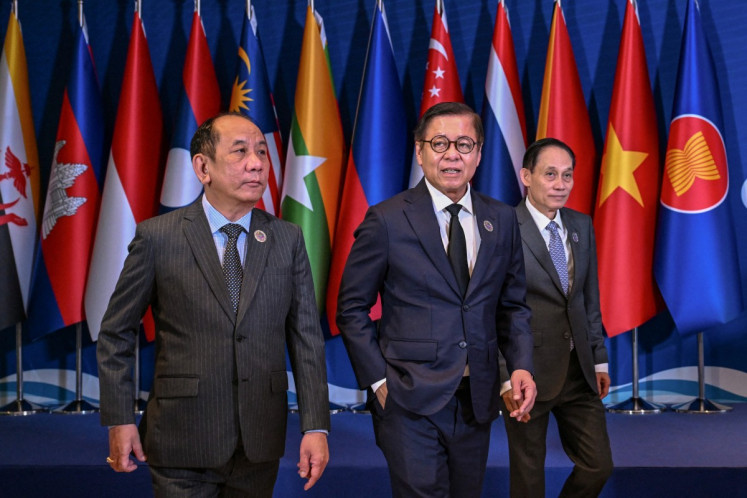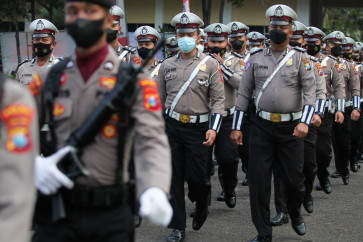Popular Reads
Top Results
Can't find what you're looking for?
View all search resultsPopular Reads
Top Results
Can't find what you're looking for?
View all search resultsAnalysis: National Police rise to the challenge of corruption
Change text size
Gift Premium Articles
to Anyone
T
he recent formation of the National Police’s Corruption Eradication Corps (Kortas) by then president Joko “Jokowi” Widodo a few days before he stepped down on Oct. 20 has sparked a discourse about its potential to reshape the country’s antigraft campaign.
With the Corruption Eradication Commission (KPK) facing declining public trust and accusations of political interference, this new anti-corruption unit within the National Police could signal a shift in the balance of power in the fight against corruption. As the KPK's credibility wanes, concerns arise over whether the police’s graft busters unit will strengthen efforts to combat deep-rooted corruption or complicate law enforcement against corruption, which is also performed by the KPK and the Attorney General’s Office (AGO).
The formation of Kortas was made official on Oct. 15 through Presidential Regulation No. 122/2024 on the organizational structure and working procedures of the National Police. Kortas is a development of the Directorate of Corruption Crimes (Dittipidkor), which was previously under the National Police’s Criminal Investigation Agency (Bareskrim). According to Article 20A paragraph (1) of the presidential regulation, Kortas is no longer under Bareskrim but will operate as a separate entity answering to the National Police chief.
The new corps is also tasked with prevention efforts, investigating and prosecuting corruption and money laundering cases, as well as tracking and recovering assets linked to corruption. It will be led by a two-star general and assisted by a deputy with the rank of one-star general.
National Police chief Gen. Listyo Sigit Prabowo said the new corps will consist of up to three directorates focusing on prevention, investigation and prosecution, and cooperation. Listyo unveiled the idea of forming the new unit after recruiting 44 former KPK employees as civil servants within the National Police, including prominent investigator Novel Baswedan, in early 2022.
A spokesman for the National Police, Insp. Gen. Sandi Nugroho, said that as part of the new unit formation the police are harmonizing with relevant ministries and agencies such as the Administrative and Bureaucratic Reform Ministry as well as the Finance Ministry before defining the new corps’ work mechanism.
The Indonesian Anti-Corruption Society (MAKI) welcomed the formation of the Kortas, saying it will significantly boost the fight against corruption.3 MAKI added that the prospects of combatting corruption should improve due to the collective efforts of various law enforcement institutions. However, the KPK still needs reinforcement for a unified approach to combat corruption.



















